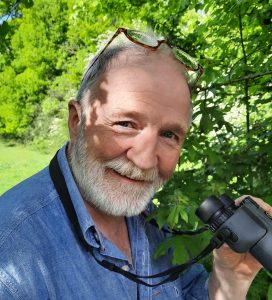As a well-respected and passionate conservationist, academic, author, television presenter and explorer, George McGavin’s interest in the natural world and especially insects began at a young age, conducting his own rock pool surveys along the beaches on the east coast of Edinburgh where he grew up. This fascination drove George to overcome a severe stammer and become an academic zoologist for 30 years, taking his degree at the University of Edinburgh, followed by a PhD in entomology at Imperial College, London. He then went on to research and teach at the University of Oxford.
George was also at one time the Assistant Curator of Entomology at Oxford University’s Museum of Natural History. Later becoming a popular and regular contributor to the BBC One Show, delighting viewers with his ecology reports and bug-life presentations. George has also presented and advised on many other television programmes including The Secret Life of Landfill and the multi award-winning documentary After Life: the strange science of decay.
George said that insects have model organisms for research into genetics, physiology, behaviour and ecology but their decline will have a very serious effect on wildflower meadow areas which are now very rare with a 97% decline in 50 years (rarer than a rainforest in fact). Also alarmingly in a province of China, farm workers are having to ‘hand pollinate’ pear trees through the decline of pollinating insects.
George hates the popular term ‘sustainable growth’ as he stressed ‘growth cannot possibly be sustainable’. He is especially proud of the fact that several insect species have actually been named in his honour.
A packed audience thoroughly enjoyed his professional and at times amusing presentation, and the afternoon was well and truly rounded off with the announcement by Stephen Abbott that that very morning news had come through that the Planning Inspector had dismissed the appeal by Persimmon Homes to build a large estate of 475 houses at Chatsmore Farm (north Goring Gap). This excellent news was celebrated by those present and the wider local communities as it would have destroyed a much needed Local Green Gap and affected the setting of the adjacent South Downs National Park, as well as causing all manner of local infrastructure issues.

